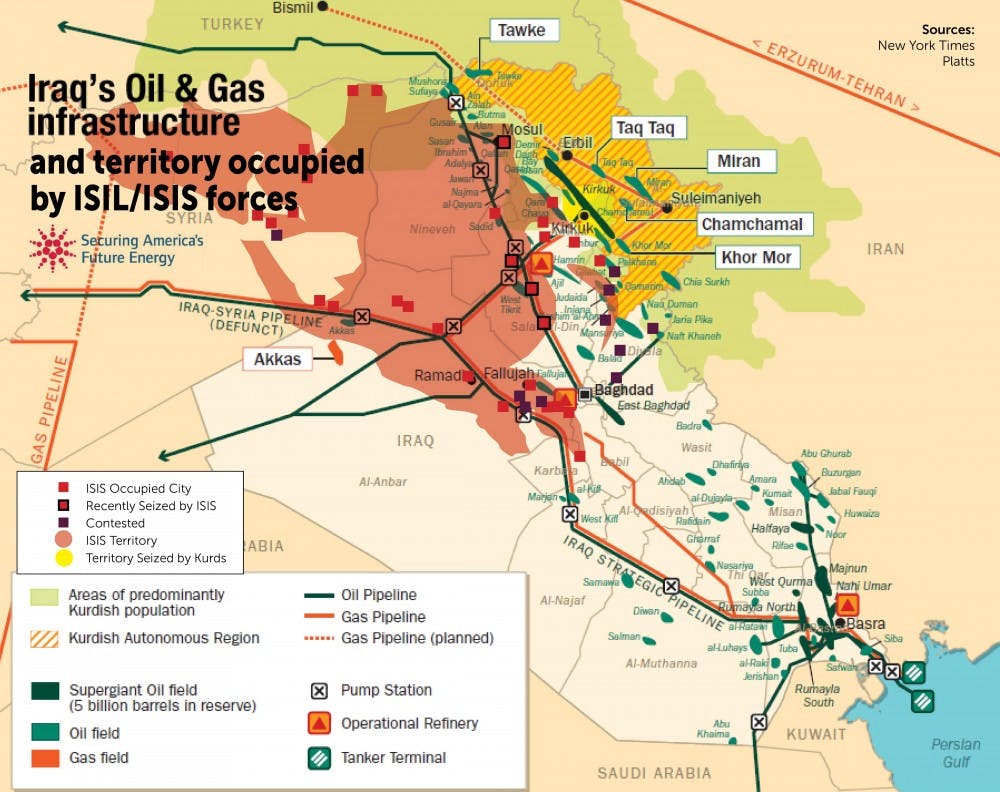The Islamic State, or ISIS, is a growing concern for many international actors as attacks are rising around the world. In order to manage the crisis in Syria, President Obama announced the U.S. policy of counterterrorism efforts to thwart the organization’s success, primarily dependent on airstrikes.
In the last few months following the announcement, no significant actions have been taken to curb the group’s influence in the region. Instead, as evidenced by the bombing of a plane leaving the Sinai Peninsula, and attacks in Paris and Brussels, the threat of ISIS is mounting. Because the organization shows no signs of decline, it is evident that the counterterrorism efforts are failing. This is largely because ISIS is not just a terrorist organization and thus cannot be fought like one.
The common understanding that ISIS is a terrorist group holds true in some respects, and this aspect of the group is gaining more prominence. Like traditional terrorist groups, ISIS uses a number of terrorist methods such as beheadings, suicide attacks and car bombs. In the last year, the group’s reach demonstrates its ability to not only coordinate attacks outside of its own territory, but to inspire attacks without the group’s backing or support.
These tactics are only one facet of ISIS, which does more than inspire fear. ISIS controls territory and maintains an army, making it more than a terrorist group with greater organization and resources. ISIS controls a significant amount of territory roughly the size of Jordan, which no other terrorist organization has been able to do before. The No. 1 goal is not to instill fear or coerce a foreign government, but to establish its own Islamic state.
As of the latest estimates, ISIS maintains an army of 30,000, comprising recruits from around the globe. With its technology and manpower, ISIS is able to confront legitimate armies and partake in a civil war, a feat that no terrorist organization accomplished before.
By gaining control of territory, ISIS implemented clear lines of authority, along with tax and education systems. The group manages utilities in the area it rules, allowing a community to form under its supervision. ISIS also raises its own revenue through taxes and oil reserves to fund the organization, bringing in an estimated $2 million a day. No terrorist group in modern history has financed its own functioning, but instead have relied primarily on donations.
I believe that the definition of ISIS has policy implications for the region and the globe. The United States claims that counterterrorism efforts will stop the group's expansion, but in reality, these efforts are insufficient because of ISIS's multiple facets. The U.S. is using the same strategy it used to fight Al-Qaeda, despite the overwhelming differences in the organization.
In my view, the policy of limited airstrikes against the group is insufficient and contributes to a flow of humanitarian issues. The approach proposed by presidential candidateTed Cruzto carpet-bomb Syria is uninformed and would be ineffective. Merely using airstrikes has not weakened ISIS, but instead provides reason to retaliate.
I believe the coalition led by the U.S. and its allies failed. Defeating ISIS rests on regaining its territory from the caliphate, because the raison d'être for ISIS is controlling territory. Containment needs to be the No. 1 priority for the U.S. and its allies.
Although I know it is an unpopular opinion and I personally do not want American troops on the ground, sending troops from any country will be effective in curbing the spread of ISIS’s reach. Providing better leadership, weaponry and training for rebel groups, combined with shifting our objectives from merely killing as many ISIS operatives as possible are the first steps to achieving containment.
ISIS's defeat requires a drastic change in American policy.
If ISIS can be confined, I think its end would be internal because it lacks allies and controls poor, uninhabitable land. Placing sanctions against ISIS's industry, especially oil, will curtail its funding. If ISIS is unable to provide for its inhabitants, the group's legitimacy will crumble. As a dynamic and multifaceted group, ISIS needs to be fought with a dynamic and multifaceted approach to its containment and subsequent demise.
Enjoy what you're reading?
Signup for our newsletter
Contact opinion writer Maggie Moroney at maggie.moroney@richmond.edu
Support independent student media
You can make a tax-deductible donation by clicking the button below, which takes you to our secure PayPal account. The page is set up to receive contributions in whatever amount you designate. We look forward to using the money we raise to further our mission of providing honest and accurate information to students, faculty, staff, alumni and others in the general public.
Donate Now



